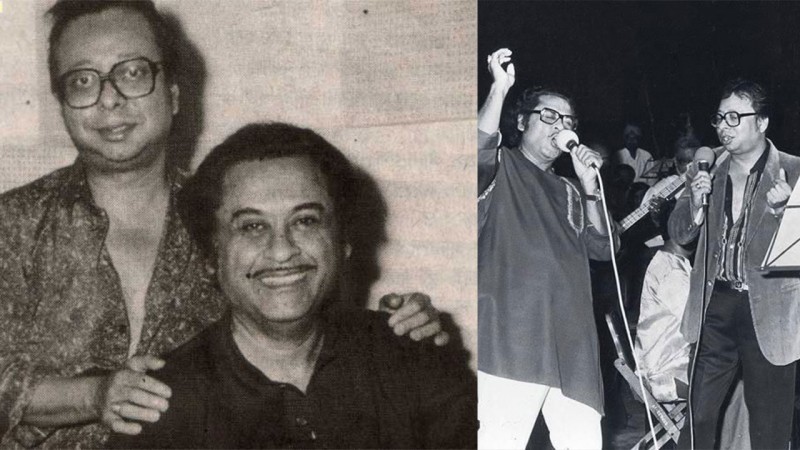
Legendary artists whose collaborations have shaped the landscape of the industry rose to prominence throughout the history of Indian music. Among these legends, R.D. Burman and Kishore Kumar stand out as an unrivaled pair whose musical chemistry completely changed the sound of Hindi film. Their collaboration was a turning point not only for the music industry but also for the careers of both Kishore Kumar and fellow legendary singer Mohammad Rafi. Playback singing's trajectory was significantly altered by R.D. Burman's compositions and his enduring partnership with Kishore Kumar, symbolizing a time of transition and change.
Mohammad Rafi was unquestionably the greatest playback singer of the 1950s and 1960s, contributing his soulful voice to countless timeless classics. But as the 1970s drew near, a fresh and versatile voice in Indian music began to emerge under the name of Kishore Kumar: a young, vibrant singer. In recognition of Kishore Kumar's distinctive vocal range and distinctive style, R.D. Burman, also known as Pancham Da, formed a partnership that would forever alter the musical landscape of Bollywood.
The innovative and experimental compositional approach of R.D. Burman connected with the audience's changing tastes and zeitgeist. His partnership with Kishore Kumar gave Hindi film music a fresh new sound that was upbeat, contemporary, and youthful. This represented a break from the conventional melodies typical of Mohammad Rafi's time, and as a result, a change that ultimately resulted in fewer opportunities for Rafi to perform playback singing.
The 1977 movie "Hum Kisi Se Kum Nahin" song "Kya Hua Tera Wada" was one of the key moments in this transition. The song's emotional performance by Kishore Kumar resonated strongly with listeners as it perfectly captured the essence of romance and longing. The song, which represented the potency of R.D. Burman's compositions and the vocal prowess of Kishore Kumar, brought Mohammad Rafi his one and only National Award for Best Playback Singer.
It's interesting that even though Kishore Kumar rose to the top of playback singing thanks to his work with R.D. Burman, he never received a National Award for it. This intriguing aspect of their relationship highlights the subjectivity and varying interpretations that influence the recognition of talent and adds a layer of complexity to their musical legacy.
R.D. Burman and Kishore Kumar's musical legacy is still a living example of how art is a dynamic, ever-evolving medium. Mohammad Rafi's hegemony gradually waned as a result of their collaboration, which ushering in a new era of Bollywood music. The results of their partnership serve as a testament to the music business's dynamism, where experimentation and innovation are the main drivers of change. An era of change was portrayed through the music of R.D. Burman and Kishore Kumar, leaving a lasting impression that can still be heard in the melodic passageways of Indian cinema.
Celebrating Freedom: Inspiring Independence Day Quotes and Traditions
Unraveling the Mystery: Is it the 75th or 76th Independence Day?
Turning the Page: 10 Celebrities Who Cheated but Wrote a Beautiful New Chapter in Love